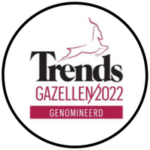Summary In the contemporary business environment, digital procurement is becoming increasingly popular and sought after by businesses around the world. The relationships …
Are vendor management systems for small businesses worth it?
How do vendor management systems address these challenges?
40% of organisations have a fully mature vendor risk management process. A vendor management system supports this by automating tasks, centralising data, and enhancing risk management. With features like compliance tracking and performance monitoring, a vendor management system improves efficiency, reduces errors, and helps mitigate vendor risks.

Automation
Vendor management software automates tasks like invoice tracking, vendor onboarding, and contract renewals, saving time and reducing manual effort. This boosts efficiency, allows resources to focus on strategic tasks, and minimises the risk of human error.

Centralised data
Vendor management software consolidates information into a single system, improving transparency, accessibility, and the tracking of performance, contracts, and procurement compliance. This ensures decision-makers have access to accurate, up-to-date insights.

Risk management
With compliance tracking, performance monitoring, and risk assessment tools, management software helps identify and address risks early. Firms can mitigate issues in compliance, financial stability, and performance, keeping relationships aligned with goals.
What is the cost-benefit analysis for small businesses?
A cost-benefit analysis for small businesses helps evaluate the financial advantages of investing in tools like vendor management systems. Research shows enterprises achieve 5% to 20% cost savings for every new dollar of spend brought under management, making it a valuable investment.
Ongoing costs
Implementing vendor management software involves upfront costs such as subscription fees, setup, and training. Subscription fees vary depending on system complexity, user count, and features. Training costs are influenced by the system’s ease of use and the level of onboarding support needed. Ongoing costs include maintenance, updates, and potential customisation as business needs change. These costs ensure the software remains effective and aligned with evolving organisational requirements.
Savings
Implementing vendor management software involves upfront costs such as subscription fees, setup, and training. Subscription fees vary depending on system complexity, user count, and features. Training costs are influenced by the system’s ease of use and the level of onboarding support needed. Ongoing costs include maintenance, updates, and potential customisation as businesses need change. These costs ensure the software remains effective and aligned with evolving organisational requirements.
ROI metrics
The ROI of vendor management software can be measured through improved performance, streamlined procurement cycles, and better compliance management. Faster procurement cycles reduce the time to bring new suppliers on board or negotiate contracts. Enhanced performance through improved collaboration and performance monitoring can lead to better pricing, terms, and outcomes. Additionally, reducing overheads and avoiding costly mistakes contribute to a higher return on investment over time.
What are the key considerations before investing in vendor management systems?
Scalability
Ensure the vendor management software can grow with your business, handling more suppliers, users, and data without compromising performance.
Customisation
Confirm the system fits your specific needs, such as managing local suppliers, tracking compliance, and integrating with other business functions.
Ease of use
Choose a vendor system that’s user-friendly for teams with limited IT expertise, with an intuitive design for quick adoption and efficient use.
Vendor support
Evaluate customer service, training, and ongoing support to ensure smooth implementation and continued optimisation once the system is installed.
Drive purpose in your organisational function with Kronos Group
Unlock the full potential of your procurement function with Kronos Group. Our expert procurement consulting services help streamline supplier relationships, optimise vendor performance, and reduce supply chain risks. With our tailored solutions, small businesses can enhance visibility, increase efficiency, and minimise disruptions—empowering your organisation to make data-driven decisions and drive long-term growth.
Let Kronos Group guide you toward smarter procurement practices and sustainable success.
Empower your procurement management with Kronos Group
With the right strategies and tools, we enable your business to make smarter decisions, reduce risks, and accelerate growth. Let Kronos Group help you unlock the full potential of your procurement function.

Fighting the effects of inflation with sourcing and procurement consultants
Stay up-to-date on the latest insights on procurement, finance, and project management.
Summary Strategic procurement has become a necessity in today’s business world and organisations try to remain competitive. Having the right procurement strategies …
Summary The world of consulting has been undergoing a massive transformation and management consulting jobs are experiencing the impacts of these changes. …
FAQ
A vendor management system (VMS) is a software platform designed to help businesses manage and optimise their relationships with vendors and suppliers. It streamlines vendor onboarding, contract management, performance tracking, and risk assessment, improving efficiency, transparency, and decision-making.
A VMS fosters transparency by tracking performance metrics, ensuring timely payments, and streamlining communication. These features build trust and strengthen vendor partnerships.
An example of vendor management is when a company uses a software platform to oversee its supplier relationships. For instance, a retail business might use vendor management software to track the performance of its suppliers, manage contracts, ensure compliance with agreed terms, and evaluate product quality. The software allows the company to maintain clear communication with vendors, monitor delivery timelines, and resolve any issues that may arise during the procurement process. This helps the company ensure efficient operations, optimise costs, and build stronger supplier relationships.














